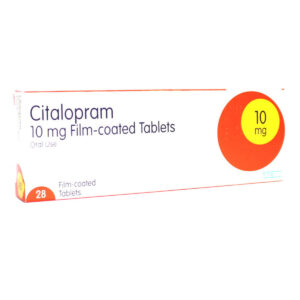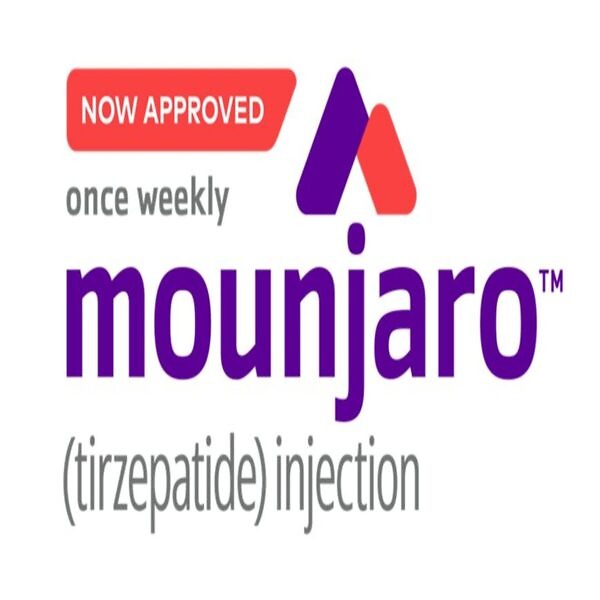Cipramil Drops – Citalopram Oral Drops 40mg/ml, 15ml
Original price was: £18.99.£16.45Current price is: £16.45.
CompareCompare- Description
- Additional Information
- Brand
- How To Use
- Product Details
- Side Effects
- Ingredients
- How to Store
- Patient Information leaflet
- Reviews (0)
- Questions & Answers
Cipramil Drops – Citalopram Oral Drops 40mg/ml, 15ml
Cipramil Drops offer a reliable, clinically-proven solution to the problem of depression and panic attacks. Formulated with 40mg/1ml citalopram, Cipramil helps to treat symptoms and prevent recurrent episodes of depression. With long-term use, Cipramil offers an effective solution for those who tend to suffer from depression or panic attacks. The active ingredient quickly absorbs into your system and helps regulate brain chemistry while offering complete peace of mind. It provides physical sensations of calmness while easing mental stress and promoting better sleep patterns. Cipramil Drops are an easy-to-use supplement that is simple to incorporate into your daily routine, providing visible improvements in your overall mood and outlook on life.
Cipramil is a Selective Serotonin Reuptake Inhibitor (SSRI) and belongs to a group of medicines known as antidepressants. These medicines help to correct certain chemical imbalances in the brain that are causing the symptoms of your illness.
Cipramil Drops Reviews
After using Cipramil Drops, it’s helpful to let others know about your experience. Reviews of an item help other users know that medicines received have helped the condition it is claimed for, how well the treatment worked or any issues to be aware of. We invite our users to leave a review of both their treatment and of the service provided. Click on the reviews tab to see if there has been feedback on this item.
What is the price of Cipramil Drops?
The price of Cipramil Drops is £16.45
Where can you buy Cipramil Drops?
You can buy Cipramil Drops at Dock Pharmacy Essex UK, UK Online Pharmacy.
Can you buy Cipramil Drops Over the counter?
Cipramil Drops is not available to buy over the counter. You need a prescription to buy Cipramil Drops
| Brand | |
|---|---|
Brand
CIPRAMIL
How To Use
How to take Cipramil Drops
How much to take Always take this medicine exactly as your doctor or pharmacist has told you. Check with your doctor or pharmacist if you are not sure.
Turn the bottle completely upside down. If no drops come out, tap the bottle lightly to start the flow.
The doses of tablets correspond to doses of drops as follows:
Tablets Drops
10 mg 8 mg (4 drops)
20 mg 16 mg (8 drops)
30 mg 24 mg (12 drops)
40 mg 32 mg (16 drops)
How and when to take Cipramil
The drops are for oral use and can be taken in a drink of water, or orange or apple juice.
Cipramil is taken every day as one dose at any time of the day.
Product Details
What you need to know before you take Cipramil Drops
Do not take Cipramil Drops • If you are allergic to citalopram, or any of the other ingredients of this medicine (listed in section 6). Consult your doctor if you think you might be. • At the same time as taking medication known as monoamine oxidase inhibitors (MAOIs). MAOIs include medicines such as phenelzine, iproniazid, isocarboxazid, nialamide, tranylcypromine and moclobemide (used for the treatment of depression), selegiline (used in the treatment of Parkinson’s disease) and linezolid (an antibiotic). Even if you have finished taking one of the following MAOIs: phenelzine, iproniazid, isocarboxazid, nialamide or tranylcypromine you will need to wait 2 weeks before you start taking Cipramil. One day must elapse after you have finished taking moclobemide. After stopping Cipramil you must allow 1 week before taking any MAOI. • if you are born with or have had an episode of abnormal heart rhythm (seen at ECG; an examination to evaluate how the heart is functioning). • if you take medicines for heart rhythm problems or that may affect the heart’s rhythm (see Other medicines and Cipramil Drops). Warnings and Precautions Please tell your doctor if you have any medical problems, especially if you have: • History of bleeding disorders or have ever suffered from bleeding in the stomach or intestine, or if you are pregnant (see ‘Pregnancy, breast-feeding and fertility’). • Liver disease. • Kidney disease. • Diabetes (you may need an adjustment of your antidiabetic therapy). • Epilepsy or a history of seizures or fits. • Mania or panic disorder. • Low blood levels of sodium. • ECT (electroconvulsive therapy). • Suffered or suffer from heart problems or have recently had a heart attack. • A low resting heart-rate and/or you know that you may have salt depletion as a result of prolonged severe diarrhoea and vomiting (being sick) or usage of diuretics (water tablets). • Experienced a fast or irregular heartbeat, fainting, collapse or dizziness on standing up which may indicate abnormal functioning of the heart rate • If you have or have previously had eye problems, such as certain kinds of glaucoma (increased pressure in the eye). Please consult your doctor, even if these statements were applicable to you at any time in the past. Please note: Some patients with manic-depressive illness may enter into a manic phase. This is characterized by unusual and rapidly changing ideas, inappropriate happiness and excessive physical activity. If you experience this, contact your doctor. Symptoms such as restlessness or difficulty in sitting or standing still can also occur during the first weeks of the treatment. Tell your doctor immediately if you experience these symptoms. Medicines like Cipramil (so called SSRIs/SNRIs) may cause symptoms of sexual dysfunction (see section 4). In some cases, these symptoms have continued after stopping treatment. Special information relating to your disease As with other medicines used to treat depression or related diseases, the improvement is not achieved immediately. After the start of Cipramil treatment it may take several weeks before you experience any improvement. In the beginning of the treatment certain patients may experience increased anxiety, which will disappear during continued treatment. Therefore, it is very important that you follow exactly your doctor’s orders and do not stop the treatment or change the dose without consulting your doctor. Thoughts of suicide and worsening of your depression or anxiety disorder If you are depressed and/or have anxiety disorders you can sometimes have thoughts of harming or killing yourself. These may be increased when first starting antidepressants, since these medicines all take time to work, usually about two weeks but sometimes longer. You may be more likely to think like this: • If you have previously had thoughts about killing or harming yourself. • If you are a young adult. Information from clinical trials has shown an increased risk of suicidal behaviour in adults aged less than 25 years with psychiatric conditions who were treated with an antidepressant. If you have thoughts of harming or killing yourself at any time, contact your doctor or go to a hospital straight away. You may find it helpful to tell a relative or close friend that you are depressed or have an anxiety disorder, and ask them to read this leaflet. You might ask them to tell you if they think your depression or anxiety is getting worse, or if they are worried about changes in your behaviour. Use in children and adolescents under 18 years of age Cipramil should normally not be used for children and adolescents under 18 years. Also, you should know that patients under 18 have an increased risk of side-effects such as suicide attempt, suicidal thoughts and hostility (predominantly aggression, oppositional behaviour and anger) when they take this class of medicines. Despite this, your doctor may prescribe citalopram for patients under 18 because he/she decides that this is in their best interests. If your doctor has prescribed Cipramil for a patient under 18 and you want to discuss this, please go back to your doctor. You should inform your doctor if any of the symptoms listed above develop or worsen when patients under 18 are taking Cipramil. Also, the long-term safety effects concerning growth, maturation and cognitive and behavioural development of Cipramil in this age group have not yet been demonstrated. Other medicines and Cipramil Drops Medicines may affect the action of other medicines and this can sometimes cause serious adverse reactions. Please tell your doctor or pharmacist if you are taking, have taken or might take any other medicines This includes other medicines for depression (see Do not take Cipramil Drops). • The herbal remedy St John’s wort (Hypericum perforatum). This should not be taken at the same time as Cipramil. • Monoamine oxidase inhibitors (MAOIs). These should not be taken at the same time as Cipramil (see Do not take Cipramil Drops). Tell your doctor if you are taking any of the following medicines: • Linezolid (an antibiotic). • Sumatriptan (used to treat migraine) or tramadol and buprenorphine and similar medicines (strong pain killers). Taking these medicines together with Cipramil can lead to serotonin syndrome, a potentially life-threatening condition. The syndrome may be associated with symptoms such as involuntary, rhythmic contractions of muscles, including the muscles that control movement of the eye, agitation, hallucinations, coma, excessive sweating, tremor, exaggeration of reflexes, increased muscle tension, body temperature above 38°C. Contact your doctor when experiencing such symptoms. • Lithium (used to prevent and treat mania) and tryptophan (an antidepressant). • Pimozide (a neuroleptic). This should not be taken at the same time as Cipramil. • Imipramine and desipramine (used to treat depression). • Medicines containing selegiline (used to treat Parkinson’s disease). • Cimetidine, lansoprazole, omeprazole (used to treat stomach ulcers), fluconazole (used to treat fungal infections), fluvoxamine (antidepressant) and ticlopidine (used to reduce the risk of stroke). These may cause increased blood levels of citalopram. • Mefloquine (used to treat malaria). • Bupropion (used to treat depression). • Medicines known to affect the blood platelets (e.g. anticoagulant drugs used to treat or prevent blood clots; aspirin and non-steroidal anti-inflammatory drugs (NSAIDs) such as ibuprofen and diclofenac used as painkillers; and some antipsychotic drugs and tricyclic antidepressants). • Metoprolol, a beta blocker used to treat migraine, some heart conditions and high blood pressure. The effects of either drug could be increased, decreased or altered. • Neuroleptics (used in the treatment of schizophrenia). Do not take Cipramil if you take medicines for heart rhythm problems or medicines that may affect the heart’s rhythm, e.g. such as Class IA and III antiarrhythmics, antipsychotics (e.g. phenothiazine derivatives, pimozide, haloperidol), tricyclic antidepressants, certain antimicrobial agents (e.g. sparfloxacin, moxifloxacin, erythromycin IV, pentamidine, anti-malarial treatment particularly halofantrine), certain antihistamines (astemizole, mizolastine). If you have any further questions about this you should speak to your doctor. Taking Cipramil with food, drink and alcohol Cipramil can be taken with or without food (see section 3 “How to take Cipramil Drops”). As with all antidepressants, it is sensible to avoid drinking alcohol whilst receiving treatment although Cipramil has not been shown to increase the effects of alcohol. Pregnancy If you take Cipramil near the end of your pregnancy there may be an increased risk of heavy vaginal bleeding shortly after birth, especially if you have a history of bleeding disorders. Your doctor or midwife should be aware that you are taking Cipramil so they can advise you. Ask your doctor or pharmacist for advice before taking any medicine. If you are pregnant, think you might be pregnant, or are trying to become pregnant, tell your doctor. Do not take Cipramil if you are pregnant unless you and your doctor have discussed the risks and benefits involved. Make sure your midwife and/or doctor know you are on Cipramil. When taken during pregnancy, particularly in the last 3 months of pregnancy, medicines like Cipramil may increase the risk of a serious condition in babies, called persistent pulmonary hypertension of the newborn (PPHN), making the baby breathe faster and appear bluish. These symptoms usually begin during the first 24 hours after the baby is born. If this happens to your baby you should contact your midwife and/or doctor immediately. Also, if you take Cipramil during the last 3 months of your pregnancy and until the date of birth you should be aware that the following effects may be seen in your newborn: fits, being too hot or cold, feeding difficulties, vomiting, low blood sugar, stiff or floppy muscles, overactive reflexes, tremor, jitteriness, irritability, lethargy, constant crying, sleepiness or sleeping difficulties. If your newborn baby gets any of these symptoms please contact your midwife and/or doctor immediately. Breast-feeding Ask your doctor or pharmacist for advice before taking any medicine. If you are breast-feeding, ask your doctor for advice. You should not breast-feed your baby when taking Cipramil because small amounts of the medicine can pass into the breast milk. Fertility Citalopram has been shown to reduce the quality of sperm in animal studies. Theoretically, this could affect fertility, but impact on human fertility has not been observed as yet. Driving and using machines Cipramil does not usually affect the ability to carry out normal daily activities. However, if you feel dizzy or sleepy when you start to take this medicine, you should be careful when driving, operating machinery or performing jobs that need you to be alert until these effects wear off. Important information about some of the ingredients of Cipramil Drops This medicine contains 76 mg of alcohol (ethanol 96%) in each ml which is equivalent to 9.0 % v/v.The amount in 1 ml of this medicine is equivalent to less than 2 ml of beer or 1 ml of wine. The small amount of alcohol in this medicine will not have any noticeable effects. These drops also contain the preservatives methyl- and propyl parahydroxybenzoate (E218,E216), which may cause allergic reactions (possibly delayed)
Side Effects
Possible side effects
Like all medicines this medicine can cause side effects, although not everybody gets them. Several of the effects listed below can also be symptoms of your illness and may disappear as you start to get better. Serious side effects Stop taking Cipramil and seek medical advice immediately if you have any of the following symptoms: • Difficulty in breathing. • Swelling of the face, lips, tongue or throat that causes difficulty in swallowing or breathing. • Severe itching of the skin (with raised lumps). • Fast, irregular heart beat, fainting which could be symptoms of a life-threatening condition known as torsades de pointes. If you notice any of the following you should contact your doctor immediately as your dose may need to be reduced or stopped: • You start having fits for the first time or fits that you have suffered from in the past before become more frequent. • Your behaviour changes because you feel elated or over excited. • You experience high fever, agitation, confusion, and trembling or abrupt contractions of muscles. These may be signs of a rare condition called serotonin syndrome. • Tiredness, confusion and twitching of your muscles. These may be signs of a low blood level of sodium (hyponatraemia). If you have thoughts of harming or killing yourself at any time, contact your doctor or go to a hospital straight away. The following side effects are often mild and usually disappear after a few days’ treatment. Very common side effects (may affect more than 1 in 10 people) • Sleepiness • Difficulty in sleeping • Headache • Changes in your sleeping pattern • Loss of body strength, weakness • Increased sweating • Dry mouth (a dry mouth increases the risk of tooth decay, so be sure to clean your teeth more often than usual) • Feeling sick (nausea) Common side effects (may affect up to 1 in 10 people) • Lack of appetite • Agitation • Decreased sex drive • Anxiety • Nervousness • Confusion • Abnormal dreams • Reduced emotions, indifference (apathy) • Tremor • Tingling or numbness in the hands or feet • Dizziness • Problems concentrating • Migraine • Loss of memory (amnesia) • Ringing in the ears (tinnitus) • Palpitations • Yawning • Blocked or runny nose (rhinitis) • Diarrhoea • Vomiting • Constipation • Stomach pain • Flatulence (wind) • Increase in saliva (drooling) • Itching • Pain in muscles and joints • For men, problems with ejaculation and erection • For women, failing to reach an orgasm • Tiredness • Prickling of the skin • Loss of weight Uncommon (may affect up to 1 in 100 people) • Bruising easily • Increased appetite • Aggression • Hallucinations • Mania • Fainting • Large pupils (the dark centre of the eye) • Fast heart beat • Slow heart beat • Nettle rash • Loss of hair • Rash • Sensitivity to sunlight • Difficulties urinating • Excessive menstrual bleeding • Swelling of the arms or legs • Increased weight Rare (may affect up to 1 in 1000 people) • Increased sex drive • Convulsions • Involuntary movements • Taste disturbances • Bleeding • Coughing • Hepatitis • Feeling unwell (malaise) Some patient have reported (frequency not known) • Heavy vaginal bleeding shortly after birth (postpartum haemorrhage), see ‘Pregnancy, breast-feeding and fertility’ in section 2 for more information. • Thoughts of harming or killing themselves, see also section 2. “What you need to know before you take Cipramil Drops” • An increase in bleeding or bruising caused by a decrease in blood platelets (thrombocytopenia) • Rash (hypersensitivity) • Low potassium levels in the blood (hypokalaemia), which can cause muscle weakness, twitching or abnormal heart rhythms • Panic attack • Grinding teeth • Restlessness • Unusual muscle movements or stiffness • Involuntary movements of the muscles (akathisia) • Low blood pressure • Nosebleed • Bleeding disorders including skin and mucosal bleeding (ecchymosis). • Sudden swelling of skin or mucosa • In men, painful erections • Flow of breast milk in men or in women who are not breast-feeding (galactorrhoea) • Irregular menstrual periods • Abnormal liver function tests • An increased risk of bone fractures has been observed in patients taking this type of medicines • Abnormal heart rhythm SSRIs can, very rarely, increase the risk of bleeding, including stomach or intestinal bleeding. Let your doctor know if you vomit blood or develop black or blood stained stools. Also let your doctor know if you continue to have other symptoms associated with your depression. This might include hallucinations, anxiety, mania or confusion. Any side effects that do occur will usually disappear after a few days. If they are troublesome or persistent, or if you develop any other unusual side effects while taking Cipramil, please tell your doctor. Reporting of side effects If you get any side effects, talk to your doctor, pharmacist or nurse. This includes any possible side effects not listed in this leaflet. You can also report side effects directly via Yellow Card Scheme Website: www.mhra.gov.uk/yellowcard or search for MHRA Yellow Card in the Google Play or Apple App Store.
Ingredients
What Cipramil Drops contain
The active substance in Cipramil drops is citalopram (as hydrochloride).
Each ml of drops contains 40 mg citalopram.
The other ingredients are purified water, ethanol, hydroxyethylcellulose, E218 (methyl parahydroxybenzoate) and E216 (propyl parahydroxybenzoate)
How to Store
How to store Cipramil Drops
- Always keep this medicine out of the sight and reach of children.
- After breaking the seal for the first time, the drops can be used for 16 weeks if stored below 25°C (room temperature).
- Do not use this medicine after the expiry date which is stated on the label or carton.
The expiry date refers to the last day of that month.
Do not throw away any medicines via wastewater or household waste.
Ask your pharmacist how to throw away medicines you no longer use.
These measures will help to protect the environment.
Patient Information leaflet
Click here for the Patient Information leaflet
Please read before using the product
Only logged in customers who have purchased this product may leave a review.
Questions and answers of the customers
There are no questions yet, be the first to ask something for this product.
You Might Also Like
£4.50 – £57.20
£4.50 – £57.20
- Availability: in stock
Citalopram 10mg Tablets, 28 Tablets Looking for a powerful antidepressant that can help you recover from your illness? Look no further than Citalopram 10mg Tablets! These tablets contain the active ingredient citalopram, which is part of a group of drugs known as Selective Serotonin Reuptake Inhibitors (SSRIs). SSRIs work by correcting chemical imbalances in the brain […]
Learn More£5.00
- Availability: in stock
Original price was: £31.40.£21.25Current price is: £21.25.
Original price was: £31.40.£21.25Current price is: £21.25.
- Availability: in stock
Other Products From This Seller
- Validated for 2-8°C for 30 to 36 hrs*
- Perfect for long-haul flights
- Carries pens, bottles, vials and syringes
- Manufactured from excellent quality materials
£102.50
- Availability: in stock
- Validated for 2-8°C for 18 to 24hrs*
- Perfect for long haul flights
- Carries pens, bottles, vials and syringes
- Integrated digital thermometer
- Manufactured from excellent quality materials
£69.45
- Availability: in stock
- Validated for 2-8°C for 15 to 20hrs*
- Perfect for long haul flights
- Carries pens, bottles, vials and syringes
- Integrated digital thermometer
- Manufactured from excellent quality materials
£54.50
- Availability: in stock
Steglatro Tablets – Ertugliflozin Tablets available in 2 strengths:
- Steglatro 5mg Tablets – Ertugliflozin 5mg Tablets
- Steglatro 15mg Tablets – Ertugliflozin 15mg Tablets
£49.50
- Availability: in stock
Original price was: £43.20.£39.50Current price is: £39.50.
Ursodeoxycholic Acid Tablets 250mg – Cholurso Tablets, 60 Tablets Introducing Cholurso Tablets the brand name of Ursodeoxycholic Acid Tablets 250mg – Your Solution for Gallstone Management and Liver Health Ursodeoxycholic Acid 250mg Tablets is a cutting-edge pharmaceutical formulation designed to positively influence bile composition, making it a versatile solution for various health concerns. Ursodeoxycholic Acid, […]
Learn MoreOriginal price was: £43.20.£39.50Current price is: £39.50.
- Availability: in stock
£156.00 – £210.00
Please note you need insulin pen needles to use Mounjaro Injection
Mounjaro Injection – Tirzepatide Injection, 4 Pre-filled Pens
Available in 6 strengths:
- Mounjaro 2.5mg Injection
- Mounjaro 5mg Injection
- Mounjaro 7.5mg Injection
- Mounjaro 10mg Injection
- Mounjaro 12.5mg Injection
- Mounjaro 15mg Injection
Learn More
£156.00 – £210.00
- Availability: in stock
Timoptol LA Gel – Timolol Eye Gel is available in 2 strengths
- Timoptol LA 0.5% Gel
- Timoptol LA 0.25% Gel
£7.50
- Availability: in stock
Original price was: £43.50.£39.75Current price is: £39.75.
One-Alpha Drops 2mcg/1ml – Alfacalcidol Drops 2mcg/1ml
Learn MoreOriginal price was: £43.50.£39.75Current price is: £39.75.
- Availability: in stock
Original price was: £5.99.£5.39Current price is: £5.39.
Ideal for irrigating and cleansing the eye, or a wound
Learn MoreOriginal price was: £5.99.£5.39Current price is: £5.39.
- Availability: in stock
Ultimate Surefit Erection Ring Set 15222 – Constrictor Rings For Erectile Dysfunction Experience Confidence and Pleasure with the Ultimate Surefit maintenance ring set – Your Key to Intimate Well-being Introducing the Ultimate Surefit Erection Ring, a premium solution meticulously designed for those seeking to overcome the challenges of erectile dysfunction. Crafted with precision and comfort […]
Learn More£58.50
- Availability: in stock




















Reviews
There are no reviews yet.